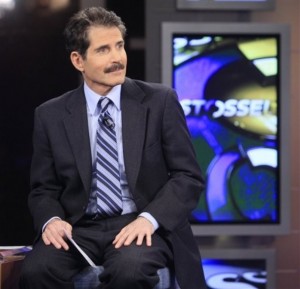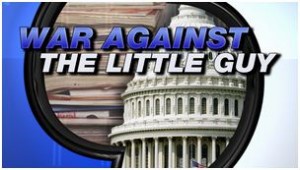Leighton and Lopez Appearing on Stossel
 Tune in to John Stossel’s show on the Fox Business Network, tonight at 9:00 p.m. Eastern, as Wayne and Ed will be interviewed about their new book, Madmen, Intellectuals, and Academic Scribblers. The eipsode will air again several times over the weekend.
Tune in to John Stossel’s show on the Fox Business Network, tonight at 9:00 p.m. Eastern, as Wayne and Ed will be interviewed about their new book, Madmen, Intellectuals, and Academic Scribblers. The eipsode will air again several times over the weekend.
This episode of Stossel covers “The War on Small Business.” After interviewing other guests about unnecessary regulations that harm “the little guy,” Stossel then asks Wayne and Ed to explain how government sometimes deregulates. We describe how sometimes politics does change for the better!
Stossel’s promotion for the episode has more detail:
Government is at war against the little guy.
Bureaucrats pass thousands of regulations to “keep people safer” and “make the marketplace more fair.” Today 170,000 pages of federal regulations are on the books. Break just one rule, and government may wreck your life.
So Wisconsin Senator Ron Johnson started a “Victims of Government” website that features victims of overregulation.
Nevada bureaucrats tell people who teach movie make-up that they must get an expensive license or close.
Stossel has two empty rooms in his house now that his kids moved out. Using sites like Roomorama, he could make a little money and rent the rooms out. But two years ago, New York passed a law that makes most of what apartment rental sites do illegal. Stossel debates Liz Kreuger, who sponsored that bill.
Is there any hope for the little guy? Authors of “Madmen, Intellectuals, and Academic Scribblers”, Edward Lopez and Wayne Leighton, point out that deregulation did happen once. Americans pay much less to fly and to ship something because the CAB and ICC no longer exist. And we have cell phones because the FCC finally allowed spectrum auction. They say the only time things change is when the right people, the right ideas and the right circumstances all come together to repeal the bureaucrats rules.


One thought on “Leighton and Lopez Appearing on Stossel”
Comments are closed.